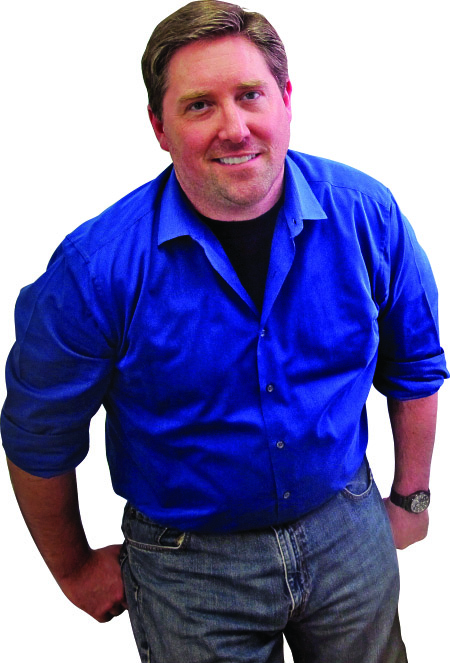Who’s Got the Edge?
Imagine a recent UO graduate with a degree in environmental studies and an excellent transcript to show for it (mostly A’s). He’s competing for a job with another environmental studies grad with a not-quite-as-stellar transcript (a few more B’s), but who spent her senior year as a member of a small, faculty-led research team. Who’s got the edge?

Josh Snodgrass
The answer, of course, depends on the job, the employer and a host of other factors that each candidate brings to the table. But in survey after survey, employers
say they want graduates who can demonstrate the professional skills—the ability to work collaboratively, show initiative, solve problems, assess and analyze data, present conclusions—that students can readily gain with research experience.
At the UO, more than 25 percent of seniors are involved in research with a faculty member. In addition, at any given time, hundreds more students are engaged in research efforts spanning a diverse range of disciplines. Some are conducting their own investigations in science labs. Others are doing fieldwork for majors such as sociology or economics. In the humanities, students are pursuing individual research projects that involve a deep dive into library archives.
Any department in the arts and sciences can connect students with faculty
mentors to create a meaningful research experience that builds a portfolio of professional skills.
Josh Snodgrass wants many more UO students to make those connections. As the newly appointed associate vice provost for undergraduate studies, he will be increasing the number of research opportunities for UO undergraduates. Under his leadership, the UO will launch the Center for Undergraduate Research and Engagement (CURE) this fall.
Besides helping students get a job or get into a professional school, “research fosters intellectual independence and gets students to think big,” said Snodgrass, a professor of anthropology. “It helps them consider, ‘How can I make an original contribution?’”
One of his priorities will be to ensure that all UO students have an inquiry based experience in their first year, to introduce them to the concept and practice of research. This will include opportunities built into courses and also outside the classroom. These firstyear projects will set the stage for more substantive research opportunities as students progress toward graduation.
Snodgrass’ goal is that 50 percent of undergrads will have a significant research experience during their time at the UO, which could include working in a lab, doing fieldwork or participating in an intensive study-abroad opportunity. To enhance students’ professionalism and sense of accomplishment, he also plans to expand the UO’s Undergraduate Research Symposium, an annual showcase of undergraduate
research, and develop it into a regional event that gets wider exposure for the work of UO undergraduates. “Undergraduate research opens the door to so many possibilities—not just career opportunities but personal growth,” Snodgrass said. “There’s a world of research going on at the UO and I’m excited to get undergraduates connected to it.”
Photo caption: Josh Snodgrass (above) is charged with increasing undergraduate research opportunities at the UO, informed by his own extraordinary experience
(See sidebar, Secrets of the Dead).


 Twitter
Twitter Facebook
Facebook Forward
Forward